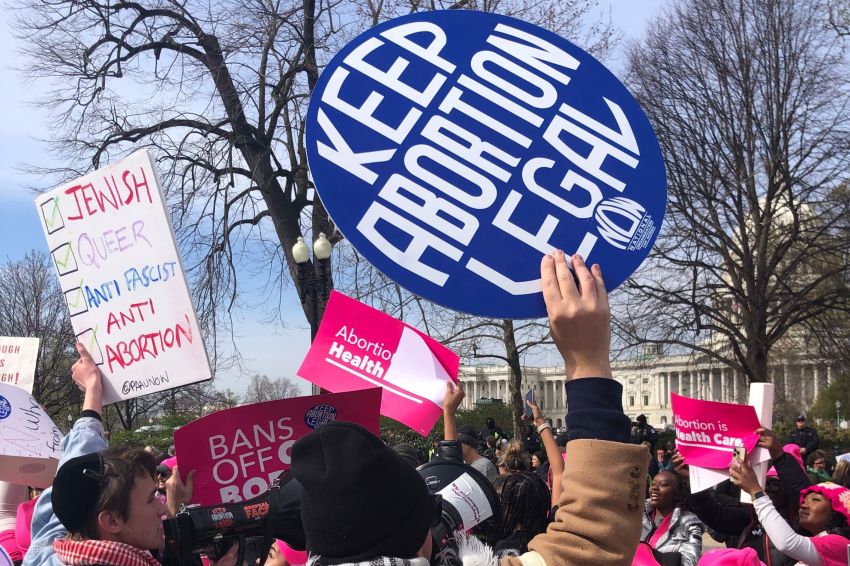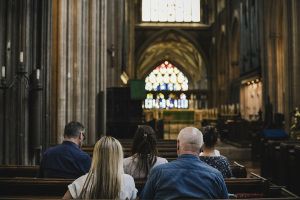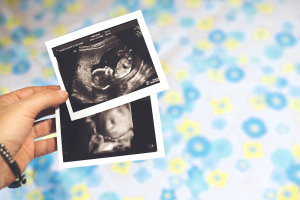Indiana abortion ban violates religious freedom rights, court rules

An Indiana court has ruled that the state's abortion ban violates the religious freedom of several Jews and religiously unaffiliated people who might seek abortions as the law's supporters remain confident it will withstand scrutiny from the Indiana Supreme Court.
Indiana Court of Appeals Judge Leanna Weismann published an opinion Thursday siding with five anonymous plaintiffs and the group Hoosier Jews for Choice. The plaintiffs asserted that the state's 2022 law prohibiting almost all abortions with exceptions in cases of a fetal anomaly or where the life or health of the mother is at risk violated the state's Religious Freedom Restoration Act.
Weismann wrote that the law "provides that '[a] person whose exercise of religion has been substantially burdened, or is likely to be substantially burdened, by a [RFRA] violation' may assert a RFRA claim." The state RFRA law defines "person" as "[a]n organization," "a religious society" and "a group organized and operated primarily for religious purposes."
According to the decision, all the anonymous plaintiffs are either refraining from "seeking to become pregnant" or "physical intimacy." Two of the plaintiffs, an anonymous Jewish same-sex couple, believe that "life begins when a child takes [their] first breath after being born."
The plaintiffs also believe that "the life of a pregnant person, including their physical and mental health and wellbeing, takes precedence over the potential for life embodied in a fetus." The group, Hoosier Jews for Choice, maintains that "under Jewish law and religious doctrine, life does not begin at conception, and that a fetus is considered a physical part of the woman's body, not having a life of its own or independent rights."
Anonymous Plaintiff 2 is not affiliated with any particular religion but believes in a "supernatural force or power in the universe that connects all humans" and that "we are endowed with bodily autonomy."
The opinion states that "[h]er religious and spiritual beliefs guide her life and dictate that '[i]f a pregnancy or the birth of a child would not allow her to fully realize her humanity and inherent dignity, she would have to terminate her pregnancy ... even under circumstances which would not be permitted under [the Abortion Law].'"
Weissmann agreed that "Plaintiffs Have Shown Pregnancy Termination Qualifies as a Religious Exercise" and thus upheld a lower court ruling that "plaintiffs are entitled to a preliminary injunction barring the State's enforcement of the Abortion Law against them until the court rules on the merits of their claims."
In a statement issued Thursday, Americans United for Separation of Church and State President and CEO Rachel Laser, whose organization joined an amicus brief in the case, praised the ruling.
"The court rightly found that Indiana's abortion ban cannot override religious freedom protections in Indiana law," she said. "As we told the court, abortion bans undermine religious freedom by imposing one religious viewpoint on all of us. Abortion bans are a direct attack on the separation of church and state."
"If America is to make good on its promise of religious freedom, each of us must be free to make our own decisions about our own bodies based on our own beliefs," she added. "That's why we need a national recommitment to the separation of church and state. It's the shield that protects freedom without favor and equality without exception for all of us."
Mike Fichter, president of Indiana Right to Life, an activist organization that supported the legislation, lamented the decision, expressing confidence that the state's abortion law will eventually be upheld.
"Today's court ruling is wrongly decided," he said in a statement. "The Indiana Supreme Court has already ruled the state has a compelling interest in protecting unborn life, and Indiana's new abortion-restriction law is doing that by reducing Indiana abortions to the lowest level in five decades."
"We are confident Indiana will prevail against any claims that abortion — the intentional ending of an innocent and helpless human life — is a religious freedom."
Indiana is one of several states that have enacted near-total abortion bans or restricted abortions to the earliest weeks of a pregnancy following the U.S. Supreme Court's 2022 determination in Dobbs v. Jackson Women's Health Organization that the U.S. Constitution does not contain a right to abortion.
Indiana is not the first state to face litigation over the abortion restrictions it passed after the Dobbs decision. The pro-life group Susan B. Anthony Pro-Life America lists Arizona, Iowa, Utah and Wyoming as states where such laws are currently on hold due to legal challenges.
Ryan Foley is a reporter for The Christian Post. He can be reached at: ryan.foley@christianpost.com



























